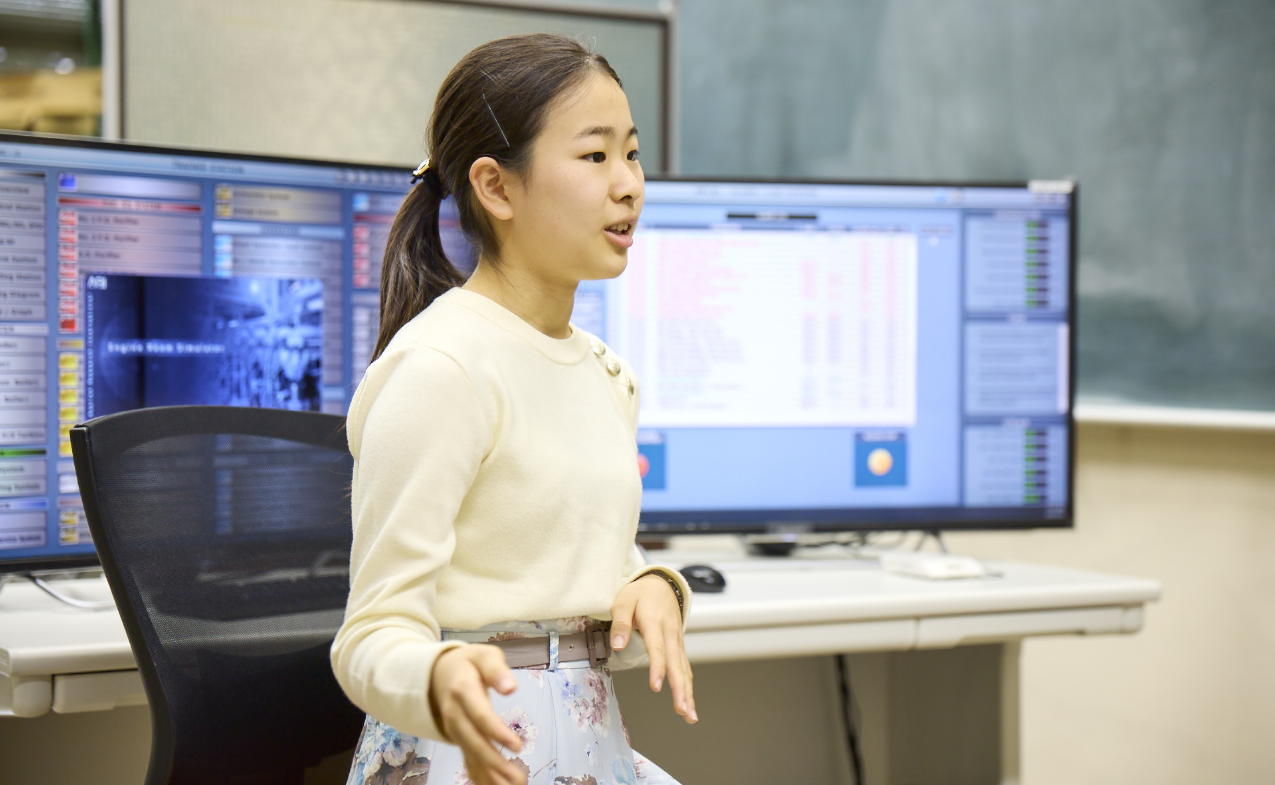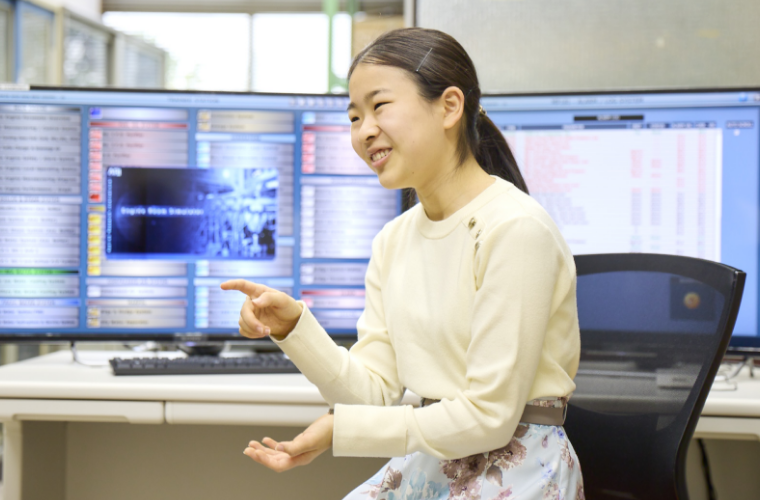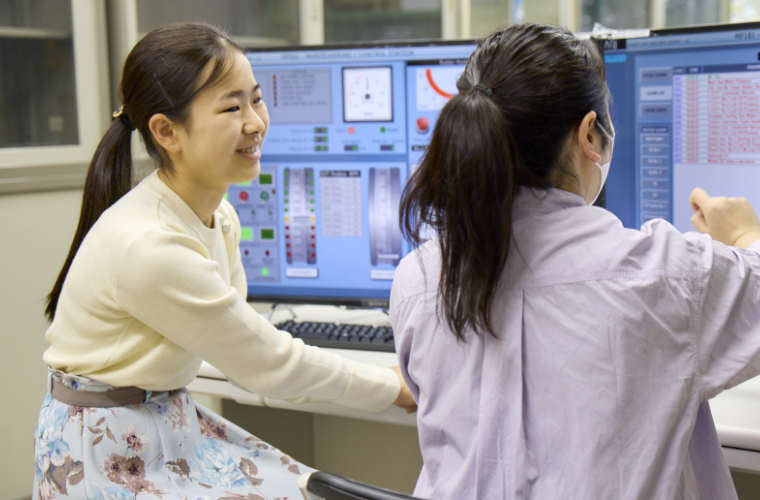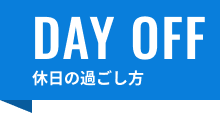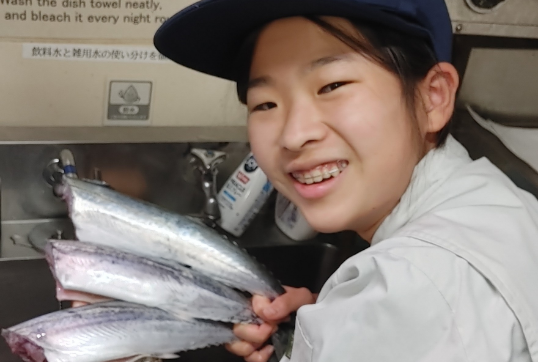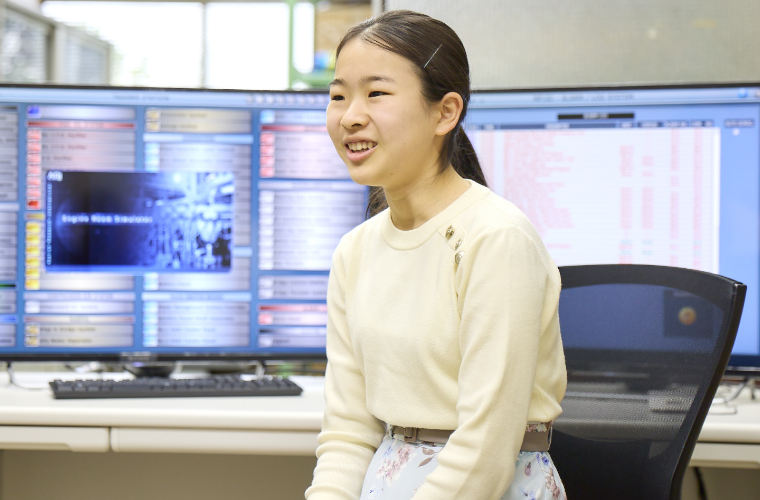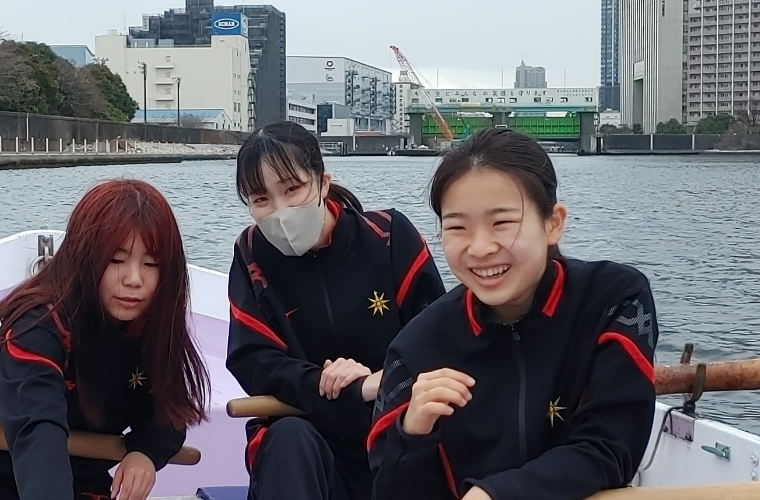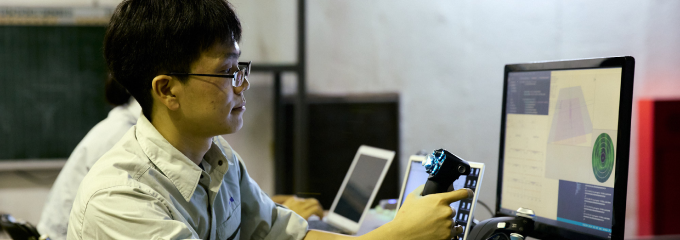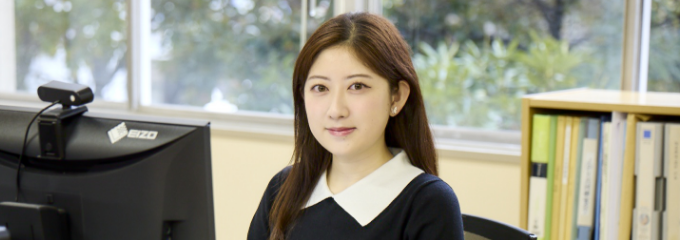You can learn a wide range of engineering, and there are many career paths other than being a sailor.
During the onboard training, you will learn about life on board.
You can have a special experience.

Ms. Saiori OkitaFaculty of Marine Engineering, Department of Marine Electronics and Mechanical Engineering, 3rd year (at that time)




